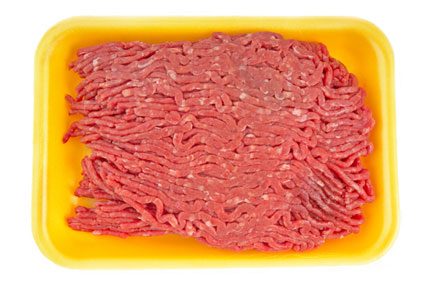|
|
Pulling back the shrink wrapby Ari LeVaux Police in Draper, Utah, had responded to Dale T. Smith and Sons Meat Packing Co., where Meyer was using a cell phone to video the goings on. No arrest was made, and police noted that Meyer was recording the view from a public street. Meyer’s attorney told the Salt Lake Tribune she was “surprised” a few days later when she learned charges were pressed. In April the prosecution began. At a plea hearing, she rejected a deal. A week later charges were dropped. The failed prosecution of Amy Meyer, like the shelving of ag-gag bills in California and Indiana, is indicative of the uphill battle the meat industry faces. Footage of sick or injured cows being dragged to slaughter, animal cruelty, and other unsafe and illegal activities are just the tip of a meat industry PR problem that’s rooted in the inescapable fact that killing animals for food, under any circumstance, is disturbing to many people. Most people who eat meat do so in spite of the uncomfortable realities, and probably, at some level, regret that an animal had to die. But evidently the hunger for meat overpowers any remorse the meat eaters might feel. Some kinds of meat, like wild game and ethically farmed livestock, offers meat eaters a chance to rationalize that at least the animals lived happy lives. But with industrially produced meat, we know it’s ugly. And thanks to videos like those that ag-gag laws seek to ban, we know in great detail how just how very ugly it can be. The scary part for the meat industry is that even videos in which no laws are broken are stirring anti-meat sentiment. For many people, even business as usual in the slaughterhouse is unpalatable. The cat is out of the bag; we can’t forget what we have seen. Nor are we inclined, based on the industry’s track record, to believe it can or will self-police its way to salvation. It’s been more than 100 years since Upton Sinclair wrote The Jungle, a novel set in Chicago’s meatpacking district. The Jungle focused on the working and living conditions endured by meatpackers and their families, and Sinclair was surprised when the public reaction was revulsion. Years later he famously said “I aimed at the public’s heart, and I hit it in the stomach.” While Sinclair’s aspirations for affecting social change went unfulfilled, the book led to two important pieces of food safety legislation: the Meat Inspection Act and the Pure Food and Drug Act of 1906, the latter establishing what became the Food and Drug Administration. Thanks to these laws, there have been many advances in all aspects of the meat industry, but it’s nonetheless noteworthy how little things have changed. To this day, worker safety and slaughterhouse conditions remain contentious issues. Meat safety is still very much an issue. And animal-rights activists have introduced another dimension to the slaughterhouse debate: that the feelings of animals need be considered. This isn’t to say that animal rights activists invented the concept of respect for animals. Even Sinclair, while it wasn’t his priority, took some time to commiserate with doomed pigs. “And yet somehow the most matter-of-fact person could not help thinking of the hogs; they were so innocent, they came so very trustingly; and they were so very human in their protests – and so perfectly within their rights! They had done nothing to deserve it; and it was adding insult to injury, as the thing was done here, swinging them up in this cold-blooded, impersonal way, without a pretense of apology, without the homage of a tear.” The ceremony that Sinclair missed is no frivolous thing. Some acknowledgement of the lives and deaths of the animals we eat does seem appropriate. I’m not suggesting that slaughterhouses conduct a sweat lodge ceremony every time an animal dies. But the industry as a whole, somehow, should acknowledge the need, felt by many, to atone for the tragedy at the foundation of eating meat. The industry also needs to acknowledge that meat processing is a topic people don’t want hidden anymore. For reasons ethical, environmental and health-related, a growing segment of the population wants to pull back the shrink wrap and see what’s behind the meat inside. Perhaps the smart thing for the meat industry to do is precisely the opposite of pushing ag-gag legislation, and let people see inside. If the public were allowed to tour slaughterhouses, it would demonstrate that industry hears the concerns and wants to show it has nothing to hide. Letting people see would be an important step in winning back their trust. It wouldn’t be an easy adjustment, given that much of what the public is offended by is perfectly legal. In this way, industry does have something to hide. And this is where the tragedy of meat is working against the meat industry. This is why this activity has always been done behind closed doors. But although the slaughterhouses can’t change the fact that animals are killed, they can change the environment in which they are dispatched. Whatever changes that might result from increasing transparency will probably not be easy. And they might not be cheap. But unlike how ag-gags are shaping up to be, pulling back the shrink wrap might be on the right side of history. Shining a light in this historically dark place could improve the well-being of the slaughterhouse workers as well as the animals. And if the changes that result improve the quality of meat, then meat eaters will have some animal rights activists to thank. |
In this week's issue...
- January 25, 2024
- Bagging it
State plastic bag ban is in full effect, but enforcement varies
- January 26, 2024
- Paper chase
The Sneer is back – and no we’re not talking about Billy Idol’s comeback tour.
- January 11, 2024
- High and dry
New state climate report projects continued warming, declining streamflows


